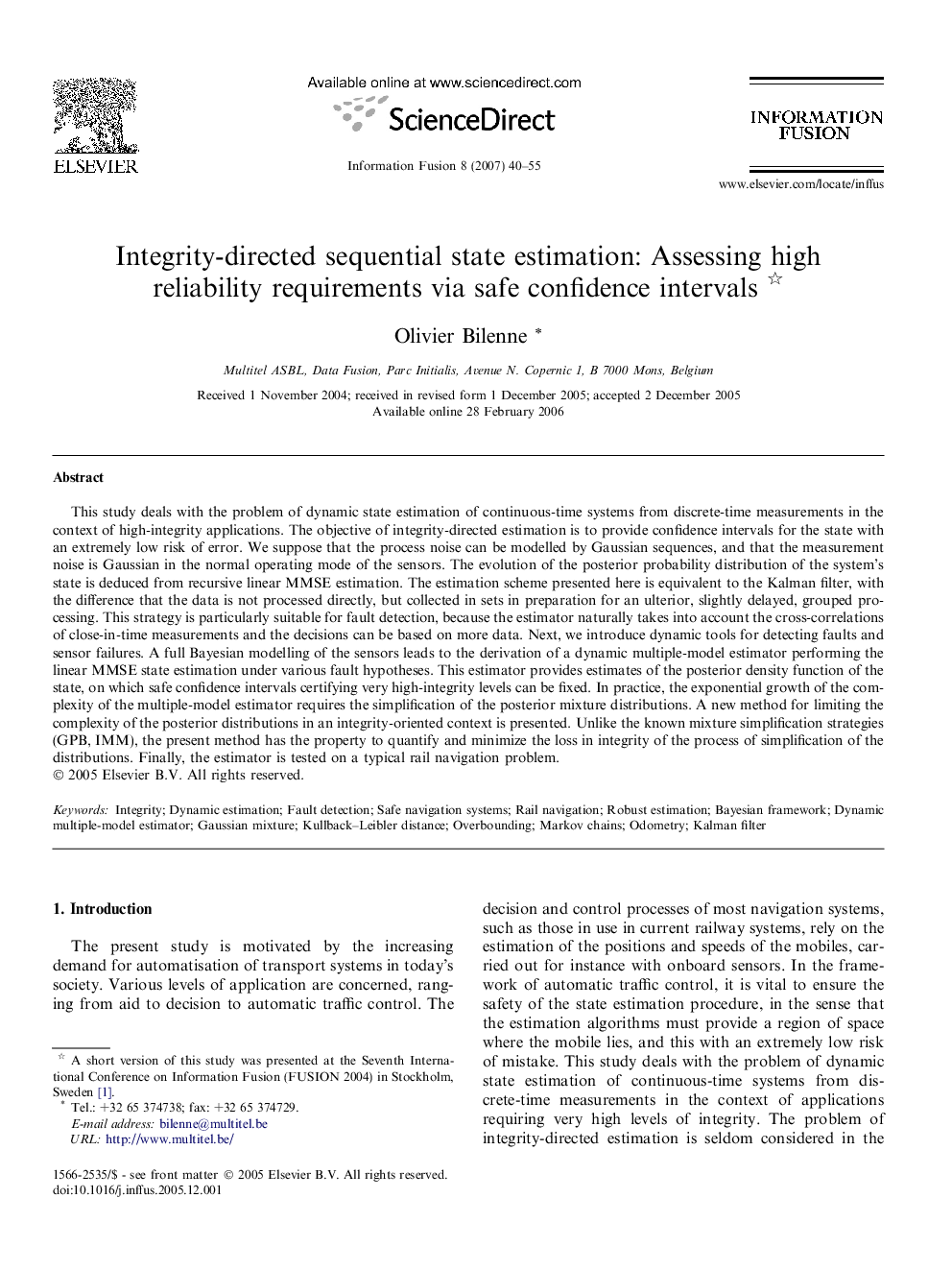| کد مقاله | کد نشریه | سال انتشار | مقاله انگلیسی | نسخه تمام متن |
|---|---|---|---|---|
| 528589 | 869587 | 2007 | 16 صفحه PDF | دانلود رایگان |

This study deals with the problem of dynamic state estimation of continuous-time systems from discrete-time measurements in the context of high-integrity applications. The objective of integrity-directed estimation is to provide confidence intervals for the state with an extremely low risk of error. We suppose that the process noise can be modelled by Gaussian sequences, and that the measurement noise is Gaussian in the normal operating mode of the sensors. The evolution of the posterior probability distribution of the system’s state is deduced from recursive linear MMSE estimation. The estimation scheme presented here is equivalent to the Kalman filter, with the difference that the data is not processed directly, but collected in sets in preparation for an ulterior, slightly delayed, grouped processing. This strategy is particularly suitable for fault detection, because the estimator naturally takes into account the cross-correlations of close-in-time measurements and the decisions can be based on more data. Next, we introduce dynamic tools for detecting faults and sensor failures. A full Bayesian modelling of the sensors leads to the derivation of a dynamic multiple-model estimator performing the linear MMSE state estimation under various fault hypotheses. This estimator provides estimates of the posterior density function of the state, on which safe confidence intervals certifying very high-integrity levels can be fixed. In practice, the exponential growth of the complexity of the multiple-model estimator requires the simplification of the posterior mixture distributions. A new method for limiting the complexity of the posterior distributions in an integrity-oriented context is presented. Unlike the known mixture simplification strategies (GPB, IMM), the present method has the property to quantify and minimize the loss in integrity of the process of simplification of the distributions. Finally, the estimator is tested on a typical rail navigation problem.
Journal: Information Fusion - Volume 8, Issue 1, January 2007, Pages 40–55